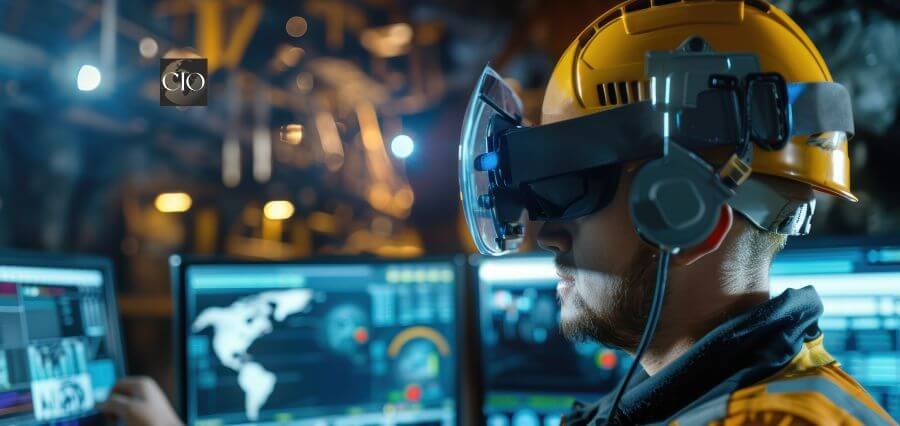In a world where technology is moving at breakneck speed, the Future of Tech Integration is not solely about driving cars by themselves and traveling to another planet’s about how much technology insinuates itself into the very heart of our centuries-old industries. Agriculture and manufacturing, education and medicine habits of human endeavor that go back centuries are being redefined by the tidal wave of digital capability and smart systems that is sweeping over us.
A Paradigm Shift in Mindset
Historically, sectors such as agriculture, construction, and textiles have relied on manual work and hard-to-change paradigms. But as the Future of Tech Integration is unfolding, we’re seeing a move from traditional resistance to digital fascination. Firms now know that adopting tech is not indulgence, it’s survival and success in a sustainable manner.
This change is propelled by the double pressure of consumer demand and competition. Customers and consumers want faster service, better quality, and increased transparency. To meet them, even the most conservative industries are embracing automation, IoT (Internet of Things), AI (Artificial Intelligence), and analytics. It’s not a matter of replacing the human touch; it’s a matter of scaling it up.
Agriculture: Soil to Software
Consider agriculture, for example, a sector predating mankind itself. Smart farming technology such as drone surveillance, soil monitoring, and AI-based crop forecasting platforms are optimizing output and minimizing the toll on the environment. The Future of Technology in agriculture is precision, and not excess yield, leveraging data to inform data-based decisions about irrigation, fertilizer application, and harvesting.
John Deere and other companies are no longer merely tractor manufacturers but technology companies building GPS-guided machines and cloud-based farm management systems. Farmers, stereotypically adverse to technology, are becoming analysts in their own right
Manufacturing: Automation Meets Artistry
Manufacturing, the second bedrock of the global economy, has also experienced one of the most radical transformations. Industry 4.0-fueled smart factories are integrating robotics, machine learning, and edge computing to build hyper-efficient production lines.
What used to be labor-intensive is becoming more intelligence intensive. Here, the Future of Tech Integration is creating room for predictive maintenance, where equipment warns operators before a breakdown happens. This is conserving time and money, besides rewriting the job of human employees—making them system managers and thinking machines.
3D printing is also a revolutionary technology. It is undermining reliance on global supply chains, enabling localized manufacturing, and creating a new breed of makers who combine coding and craftsmanship.
Healthcare: Precision, Personalization, and Proactive Care
In healthcare, the Future of Tech Integration is most intimate. Technologies such as telemedicine, wearable health monitoring, and AI-assisted diagnosis are not merely making care more convenient, literally saving lives. Remote village patients can now receive consultation from specialists who are hundreds of miles distant. AI platforms such as IBM Watson can browse millions of data points to recommend treatment for esoteric diseases that even highly trained doctors might miss.
Other than that, personalization has become a healthcare standard. Personalized medicine and genetic testing are becoming mainstream so that treatments can be customized based on one’s genes. Hospitals are also taking advantage of Electronic Health Records (EHRs) and applying machine learning algorithms to predict patient needs even before symptoms are aggravated.
Education: From Blackboards to Cloud Boards
Another industry that looks for radical transformation is the education industry. Even if the chalkboard teaching is nostalgic, the Future of Tech Integration in teaching is characterized by immersive technology such as AR/VR, AI instructors, and learning spaces that adapt.
Online learning systems like Coursera, Udemy, and Khan Academy have created learning opportunities so that students of all backgrounds can learn skills at demand. At the same time, classroom instructional technologies in the shape of smart boards and student performance dashboards are facilitating teachers to tailor instruction for greatest effect.
The use of technology in education doesn’t imply replacing teachers—rather, it implies that they are empowered. With instant feedback and automated grading, teachers do not have to deal with more paperwork and can spend more time interacting with students.
Challenges and Considerations
Despite the obvious advantages, implementation of technology in conventional industries is not problem-free. Concerns regarding privacy of data, computer literacy, upfront capital investment, and change resistance continue to be there. To that is added also always the fear of losing jobs through automation.
But the challenges are not impossible to overcome. They need to be balanced between innovation and inclusion. The Future of Tech Integration must be underpinned by ethical considerations shaping human wellbeing, reskilling labor, and environmental sustainability.
Governments, education institutions, and businesses must all come on board to ensure this happens easily. Investment in digital infrastructure, upskilling, and pro-inclusive innovation policy will play a key role in ensuring that no one is left behind during the revolution.
A People-Focused Tech Future
At its core, the Future of Tech Integration is less about gadgets or credits about people. The call isn’t to digitize for the sake of innovation, but to solve actual world problems, unleash human potential, and develop more purposeful, efficient, and accessible ways of working and living.
Most significant will be how we navigate this transformation—whether we see technology as a threat to the status quo or an instrument to create more robust ones. Those industries that enter this transformation with foresight will not just endure but flourish in the decades ahead.
As we look to the horizon, one thing is certain: the Future of Tech Integration isn’t just on the way—it’s already arrived. The question is, how open are we to accepting it and leveraging it to transform the very essence of legacy industries? The answer will determine the next wave forward.
Read More: How Visionary CEOs Transform Industry Landscapes Through Strategic Innovation?




